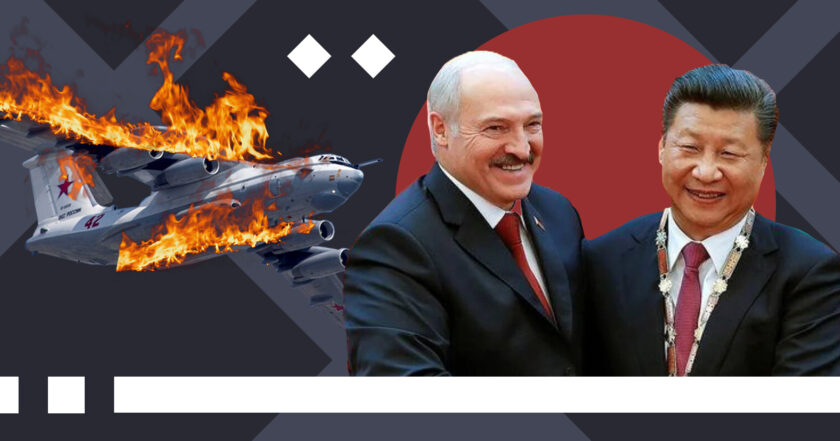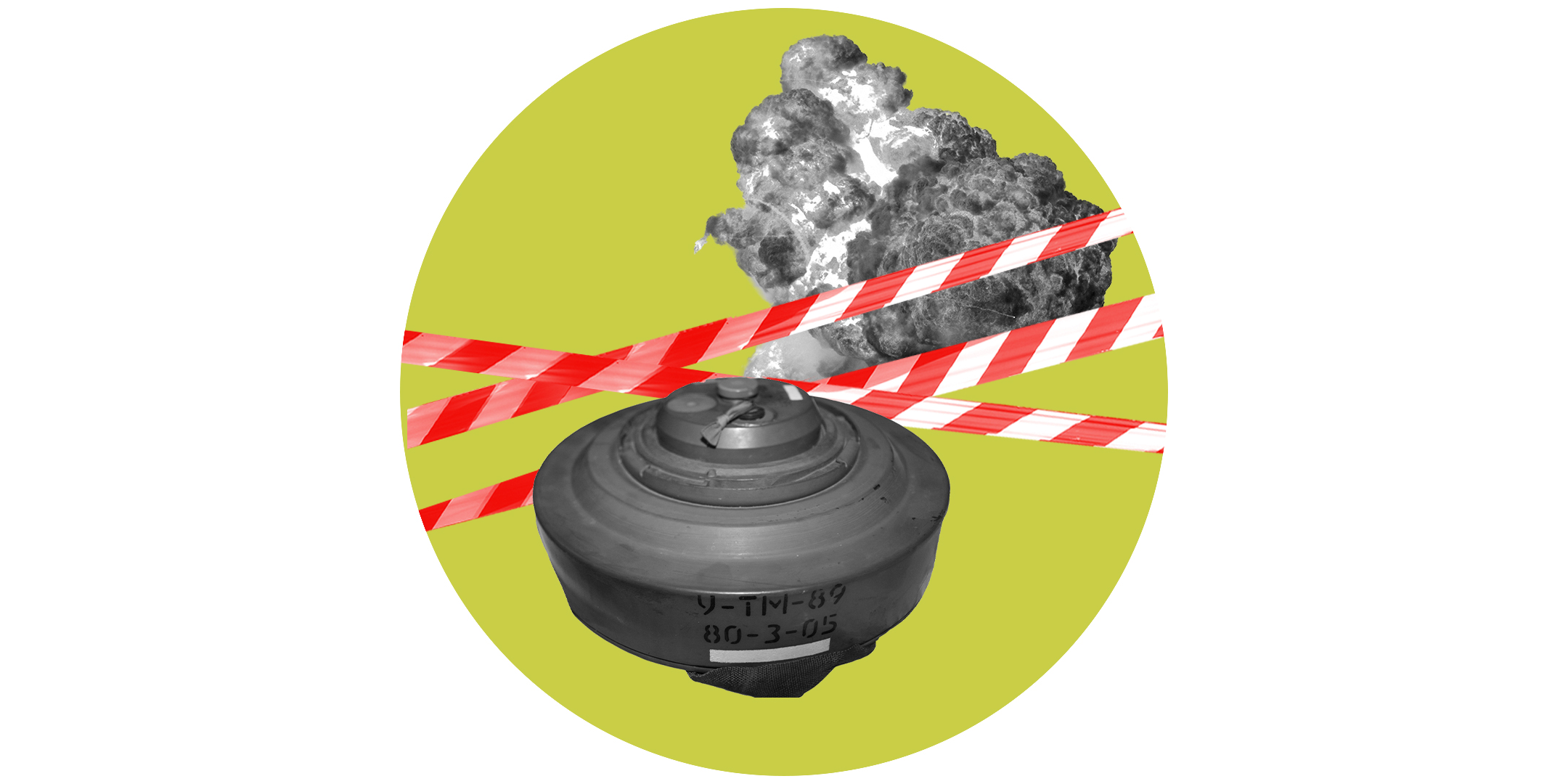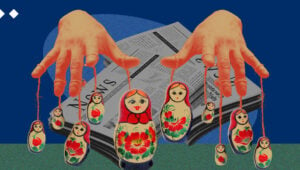Ukraine preparing for a counteroffensive and russia facing domestic insurgency: key trends in Ukraine's wartime reality

International Developments
- The week started with an incident in Machulishchy air base, Belarus, where the drones damaged the A-50 aircraft (AWACS-like platform) of the russian air force. The Belarus resistance movement claimed responsibility for the strike, noting that group members could leave Belarus territory safely shortly after the incident.
The incident involved two small drones loaded with explosives landing and damaging the surveillance equipment of the A-50 aircraft, which russian forces used to guide cruise and hypersonic missiles during the massive strikes against Ukrainian civilian/critical infrastructure targets. The aircraft was also used to gather information on Ukrainian air defenses – SAM batteries and radar stations as part of russian war efforts against Ukraine.
Belarus and russia authorities issued no official statements or comments on the incident except for airing a short video showing the supposedly damaged A-50 taxiing the airfield runway in the dark. According to later reports, the A-50 left Belarus for russia, supposedly for damage assessment and repair.
The drone targeted not only russian military installations in Belarus strikes at the beginning of the week. More russian-based military and defense industry installations were reportedly targeted in Tuapse (russia's Adygeya region), Moscow and St.-Petersburg regions. A few days later, russian military facilities in occupied Crimea were also targeted by drone strikes.
Although none of the targets got destroyed, these new drone attacks marked another step toward crippling russian military capabilities directly on the battlefield and in russia's rear.
- The self-proclaimed president of Belarus, Lukashenko made an official visit to China in an attempt to diversify his political ties as kremlin mounts political pressure on Belarus to take a more active part in russian war efforts in Ukraine.
Lukashenko seeks political protection from China's Xi Jinping, close to what Kazakhstan's Tokaev has received. During his visit, Lukashenko demonstrated his highest praise and support for the Chinese "peace plan", an official statement on the russian-Ukrainian war. He also signed a package of bilateral agreements strengthening trade and industrial/technological ties between China and Belarus.
War/Security Situation
- The situation in Bakhmut continues to draw much attention from the Ukrainian, russian and Western elites.
Ukraine's objective is to divert and drain russian forces that would have been used to strengthen russian offensive capabilities in other locations. However, the continued defense of Bakhmut requires Ukrainian authorities to make a prudent judgment of the cost-benefit balance for the town's garrison, not influenced by political calculation and propaganda competition with kremlin.
russia wants to seize Bakhmut to present it to its population as an "important victory" and proof that the war develops favorably despite significant losses.
At the same time, the russian military command may use a siege of Bakhmut to make an unexpected move and relocate their forces to the South–South–Eastern sector to support the russian offensive force there. Then, it might leave Prigozhyn's Wagner Group alone and make him personally responsible for the retreat or failure to take over Bakhmut.
Western allies warn that the situation might soon demand Ukrainian forces to withdraw from Bakhmut if russian military succeeds in cutting off vital supply lines. However, such a decision is not considered an obstacle to preparing for major counteroffensive operations once Ukraine receives Western armor and the newly formed mechanized assault brigades complete their training.
- A group of russian citizens from the "russian Volunteer Corps" (RDK) conducted a daredevil operation at Sushany village in the Russian Briansk region. They recorded a public address calling Russians to stand up against Putin and retreated to Ukrainian territory with a minor firefight with the russian military. The incident occurred only days after russian president putin addressed the russian Federal Security Service (FSB) senior officers demanding active measures against "terrorists".
The leader of RDK group acknowledged that it coordinated its efforts with the Ukrainian intelligence agencies, although representatives of Ukrainian military publicly denied such cooperation. In any case, the incident showed that the extensive use of the hybrid warfare toolkit backfired on russia and damaged the image of FSB and putin's omnipotence in domestic affairs. The russian state-run propaganda showed total unpreparedness for the situation, as it drifted away from the pre-planned scenario, causing even more confusion. Eventually, the FSB and the kremlin will direct more resources to mitigate the risk of domestic insurgency.
Conclusions and Recommendations
- The incident with russian A-50 AWACS in Belarus crippled russian ability to plan, coordinate and execute missile strikes against Ukrainian civilian and critical infrastructure targets. It also demonstrated the vulnerability of russian military installations in Belarus. The incident questions the Lukashenko government's ability to control the situation in the country and shows that direct participation in war carries significant risks for regime stability.
- The drone strike against russian military bases and the defense industry proved that Ukraine had developed its long-range strike capabilities. Kyiv upholds the agreement not to strike russian territory with Western weapons but demonstrates its intentions to hit russia in response to missile and drone attacks.
- Lukashenko's visit to China may be an attempt to further safeguard Belarus from being dragged into the war in Ukraine by russia. Belarus can also be used as a proxy by China to support russian war efforts without the risk of providing direct military assistance to the kremlin. Ukraine's Western allies must closely monitor this potential development to keep the sanctions policies against russia on the right track.
- The defense of Bakhmut buys time for the Ukrainian Armed Forces to prepare for the coming counteroffensive. However, to decide on holding or retreating from the city, Ukrainian authorities must make a prudent judgment about the capabilities and security of the town's garrison and avoid political and propaganda competition with kremlin. It is also essential to keep in mind the likely russian tactical retreat from Bakhmut aimed at gaining the operational initiative in other locations. In any case, Ukrainian forces require more artillery munition, which the Western allies should immediately deliver to deny russians initiative on the battlefield.
- The "russian Volunteer Corps" trans-border operation resulted in a remarkable success exposing the weakness of the FSB and russian Border Guard control of the border areas and confusion of the official propaganda. The new similar activities will likely disturb kremlin's grip in other regions and force russian authorities to distract resources from the war to counter domestic insurgency.
This policy brief was prepared exclusively for "Rubryka" by Ilko Kucheriv Democratic Initiatives Foundation as part of a project "russia-Ukraine Conflict: from Full-Scale War to Conflict Resolution and Post-War Reconstruction" implemented in cooperation with the Razumkov Centre with the support of the MATRA program of the Embassy of the Netherlands. The opinions expressed are those of the author(s) only and should not be considered as representative of the Embassy's official position.
Если вы нашли ошибку, пожалуйста, выделите фрагмент текста и нажмите Ctrl+Enter.












